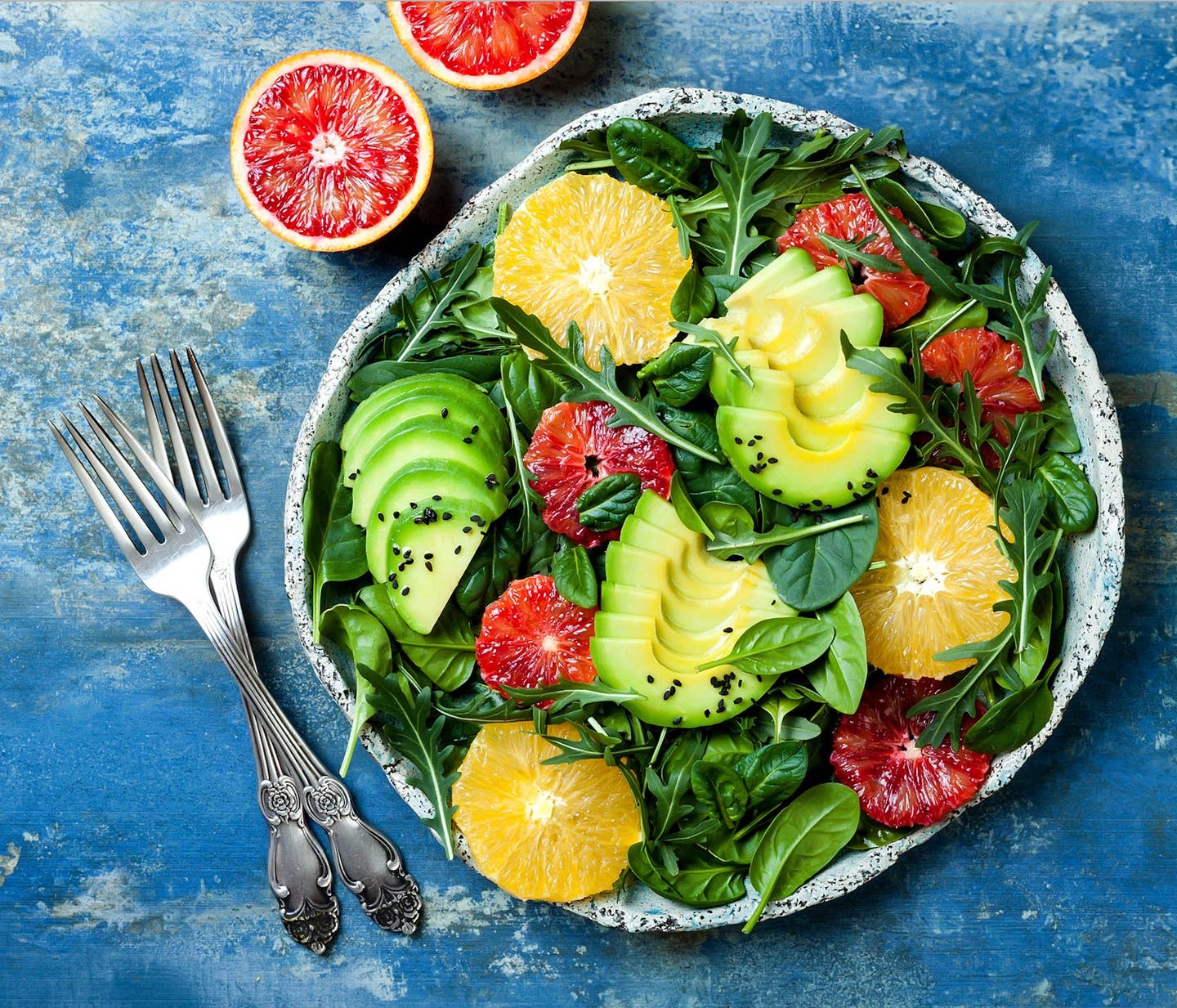
7 Vegan Superfoods Nutritionists and Doctors Wish You’d Eat This Spring
This spring, as the unsettling coronavirus crisis continues to unfurl on our country, we’re all looking to load up on as many superfoods as possible to boost our immune systems and become our healthiest. Pass the chia seeds, please. But what about the fresh fruits and veggies we all should be enjoying this season to promote our wellbeing? Thankfully, this season of rebirth and renewal showcases many gems in the wonderful world of produce. Below, we tapped nutritionists to share their favorites and what makes them such a potent pick for your health.
1. Parsley
“Parsley Is so underrated,” notes Megan Wong, Registered Dietitian at AlgaeCal. “It’s a mega source of vitamin C and vitamin A, and provides a good amount of potassium and iron, too. So it’s great for your immune system, eyes, heart, and overall energy levels,” she says, pointing to this review of the health benefits of herbs and spices. Her favorite ways to enjoy the refreshing herb? Tabbouleh salad, parsley pesto and Persian herb frittatas (“Kuku Sabzi”).
2. Artichokes
“This vegetable gets little attention outside of cheesy dips, but it is an excellent superfood for vegans and non-vegans alike. The artichoke is packed with antioxidants, equal to blueberries and dark chocolate,” explains Trista K. Best, Registered Dietitian with Balance One. “Its fiber content helps to remove ‘bad’ LDL cholesterol from the blood and the folic acid found in artichokes supports blood pressure, liver, and brain health.” To boot, it’s safe to say nothing tops artichokes with mom’s signature mustard vinaigrette dressing as a satiating side with dinner.
3. Mushrooms
You don’t have to tell us twice to add more savory ‘shrooms to our plates. “Vitamin D is a really important nutrient that helps with countless functional processes. Unfortunately, however, Vitamin D is found in only a few food sources, and vegans may be at the greatest risk of deficiency,” cautions Amanda A. Kostro Miller, RD, LDN, who serves on the advisory board for Fitter Living. Thankfully, vegans can get their vitamin D from mushrooms, and with the fungus fitting wonderfully into a variety of cuisines from Italian to Japanese, it’s certainly a delicious vehicle for getting your vitamin D fix. Worth noting: “Even though we do get some Vitamin D from sunlight, often the risk for skin cancer when exposed to sunlight outweighs the benefit of getting Vitamin D from sunlight,” adds Kostro Miller.
4. Green Peas
Dr. Lina Velikova, MD, Ph.D., a medical advisor at supplements101 is a huge fan of the tiny but mighty green pea: “[Green peas are a] fantastic source of vitamin K [and a] spring food that has a versatile place in a vegan diet,” she says. “Green peas have the properties to control the blood sugar. Zeaxanthin and carotenoid lutein have been shown to support eye health, and green peas are abundant with these substances,” she continues, noting that they’re also rich in vitamins K, A, and C, as well as iron. Add them to any soup, salad, or pasta recipe or consider cooking them in one of Veilkova’s favorite combinations, with onions, carrots, and dill.
5. Avocado
When you go plant-based, it’s important to incorporate sources of healthy fat into your diet, like nuts, olive oil, and chia seeds. Another excellent route? Every millennial's favorite fruit: Avocado. “Avocado is my must-have healthy fat choice for the Spring. Avocados are delicious, versatile, and are truly a superfood,” offers s Dr. Anna Cabeca, D.O., author of The Hormone Fix. “Studies have shown that eating avocados provide a wide range of benefits, from fighting inflammation to improving insulin regulation and weight loss, and even improving hormonal imbalance,” she adds.
6. Okra
What’s for dinner? Vegan okra gumbo! Some hail, some wail. Well, it’s time to embrace this often ignored veggie: “Okra isn’t everyone’s favorite because of how slimy it is, but you may want to give it a try after learning how nutritious it is. It’s low-calorie, packs in immune-boosting vitamin C, and is a great source of soluble fiber. Soluble fiber helps stabilize blood sugars and keeps you feeling more full after meals so you don’t snack as much,” explains Wong. To reduce the slime-factor, Wong recommends cooking okra whole instead of slicing them into bite-sized pieces or roasting okra to make baked okra “fries.”
7. Asparagus
We know, we know, pee syndrome aside, the nutrition prowess of this versatile veggie makes it well worth incorporating a few stalks into your diet regularly. “This spring vegetable provides a significant amount of vitamins A, C, E, and K as well as antioxidants for overall health,” offers Best. “Glutathione, the most abundant antioxidant in asparagus, naturally breaks down carcinogens in the body. Carcinogens, and other free radicals, which create cellular damage and lead to cancer and just about every other chronic disease.” Try some grilled or roasted with a drizzle of olive oil and sea salt or chop up one-inch pieces and add to your favorite curry recipe. (Calling all Easy Vegan Tofu Curry fans.)
More From The Beet






